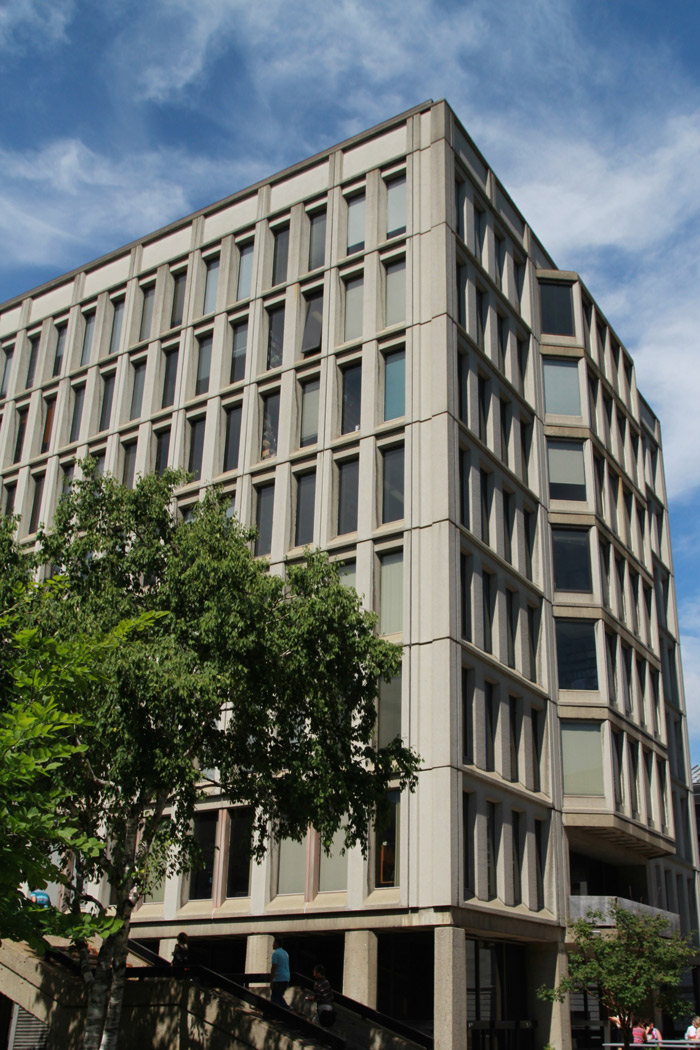The McGill Senate met on Feb.15 for an open discussion on McGill’s Strategic Academic Plan for 2017 to 2022, a presentation of the Staffing Report for 2016, and to pass a motion formally recognizing the celebration of Black History Month by the university.
Open discussion on the McGill University Strategic Academic Plan 2017-2022
Vice-Principal and Provost (Academic) Christopher Manfredi presented McGill’s Strategic Academic Plan for the next five years. The Plan identifies five key objectives for McGill’s academics: Be open to the world, expand diversity, lead innovation, connect across disciplines and sectors, and connect to [the Montreal] community.
The plan includes reducing McGill’s carbon footprint, doubling the number of students enrolled in enriched learning opportunities, such as studies and internships abroad, increasing the number of female full-time professors by 25 per cent, and increasing student aid to 30 per cent of net tuition revenues from the current 10 per cent.
Associate Professor Ronald Gehr of the Faculty of Engineering raised concerns that expansion of enriched learning opportunities should not come at the expense of existing programs.
“I’m speaking specifically about the Bellairs research institute in Barbados, at which there are two full session internship programs,” Gehr said. “[…] They literally do not have a working blackboard, [and] the wastewater from this facility is discharged into a hole. We’ve been trying for many years to upgrade this facility and we’ve always been told, ‘Well sorry, there’s no budget.’ If we’re going to make this commitment to [enriched learning], we really should start at home.”
The university’s Strategic Academic Plan will be finalized and presented to Senate for approval in April 2017.
McGill University Staffing Report 2015-2016
Manfredi also presented Senate with the 2015-2016 McGill University Staffing Report, which details the increase of 522 staff employed at McGill from 2011 to 2016. Of these 522 new hires, 464 are Contract Academic Staff (CAS), a classification including lecturers and professors who are employed for temporary contracts. The report attributes this growth to the expansion of student services, an increase in the number of staff necessary for external reporting, and shifts in competency and skill requirements for multiple faculties. The report also notes that the rate of hiring is slowing, likely due to financial constraints imposed by reduced provincial government funding.
Manfredi responded to concerns about the university’s increased reliance on CAS hires, who lack the same job security as tenured academic staff.
“Our philosophy is that we should be delivering most of our teaching programs through the use of tenure-track faculty, which is, in fact, what we do,” Manfredi said. “I would suggest […] that among research universities in North America, McGill probably makes less use of CAS. [….] Yes, we have 464 more CAS now than we did five years ago, but 428.2 of those are in the Faculty of Medicine. [….] Quite frankly, when I look at this, I’m not concerned.”
Motion Regarding the Annual Celebration of Black History Month
Senator Charles Keita of the Faculty of Arts drafted and presented a motion calling for the formal recognition and celebration of Black History Month by McGill.
“Until [SEDE started organizing its celebration] this year, there was no official body on the campus that celebrated [Black History Month],” Keita said. “Quebec, Canada, […] all of North America [celebrates Black History Month], and it would be frowned upon if McGill, as an institution, didn’t decide to equally celebrate it.”
The motion, which also called for McGill to explore academic opportunities that highlight the contributions and scholarship of the black community, was unanimously approved.









